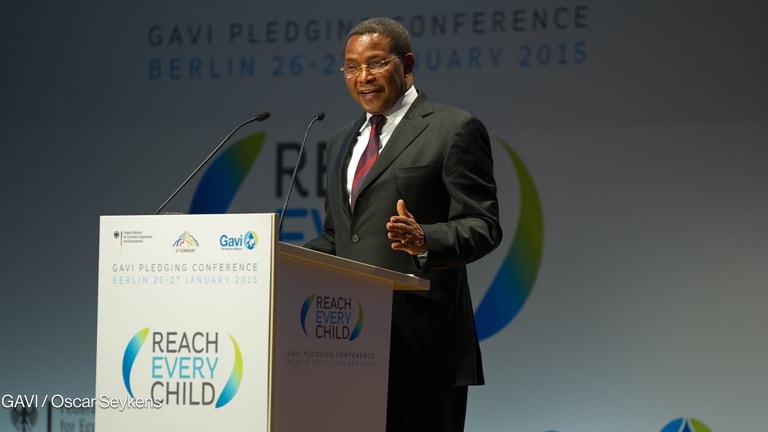
I haven’t seen anything like what I am seeing in and around Baidoa, Somalia, before. In the camps, there are tents stretching for miles as far as one can see.
More than 1 million people are now internally displaced, with many living in camps like these. They have left their homes to escape Somalia’s terrible drought and to try and find some food and water. Thousands more people have arrived since I was last here in July and more arrive every day. Aid agencies in the camps are stepping up emergency relief as funding belatedly arrives, but it is nowhere near what is needed.
The United Nations expects some areas of Somalia to fall into famine in the coming weeks, but the international community should not wait for an official famine announcement to act because children are dying right now.
Conditions here are truly miserable. The tents are often little more than torn garments and bits of plastic strung together into a shelter from the scorching sun. Many families do not even have that and are sheltering in the open. As more people arrive, there is increasing pressure on the limited resources and the situation is getting out of control.
We are seeing an increase in diseases such as fungi, scabies, and measles, which can be fatal if not treated.
In the camps, I met young children so malnourished and weak that they could barely stand. Some had not eaten for days or had survived on a diet of wild fruits that are not usually fit for humans to eat.
Child mortality has increased significantly in recent months. More than 700 children have died in official nutrition centers — but we know that many more have died outside and undocumented, far from help. People here told me of up to 300 children who died on the journey to the camps.
Jowhara Mo’allim Hared from the Bulo Isack camp for internally displaced people told me that children are dying every day because of malnutrition. She was terrified for her own children, who had not eaten adequate food for days and were in danger of the same fate.
There are hundreds of similar stories of mothers watching their children die slowly because of hunger. As I walked around the camps and spoke to the mothers, I felt that the world had forgotten the children of Somalia. Every day the situation gets worse but there is little outrage or attention. As the world watches in silence, children across Somalia are dying from starvation and preventable diseases.
The youngest children — those under 5 years old — are at the most risk. There are now more than 513,000 young children who are expected to suffer severe acute malnutrition, the most extreme form of malnutrition. Even if they survive, it has devastating impacts on their long-term physical development and will affect them for the rest of their lives.
Islamic Relief is providing aid such as food, water trucking, construction of shelters, latrines, and sanitation, but it is not enough. We need mobile health services, medication, drinking water, and most importantly food.
We’re calling on international governments to step up and provide emergency funding to save people’s lives and livelihoods right now.
And we also need a new long-term approach to tackling hunger and climate crises. Extreme climate events like droughts are becoming more frequent and more severe. Four rainy seasons in a row have failed — a climatic event not seen in at least 40 years. If we are to stop such crises from happening more regularly, we need more investment in long-term food security, livelihoods, and climate adaptation. And that support needs to come earlier.
The warning signs of this crisis have been clear for at least the past year, but funds have not come in time for too many. Acting to prevent the crisis early on saves far more lives and needs less money. Responding when we are on the verge of famine is too late.
The last time there was a famine in Somalia was in 2011, when it claimed the lives of more than a quarter of a million people. Half of them were children under 5 years old. Then, as now, the warning signs went unheeded and by the time the world took notice and responded, tens of thousands of people were already dead.
I feel like history is repeating itself today. We must learn the lessons of the past and make sure that aid quickly gets to the people who need it most.








